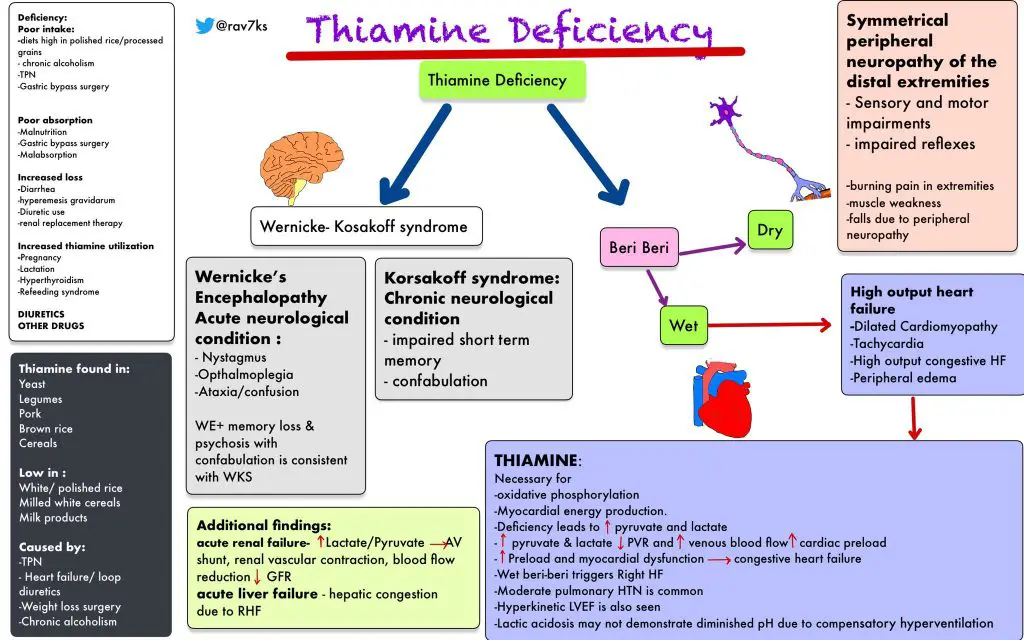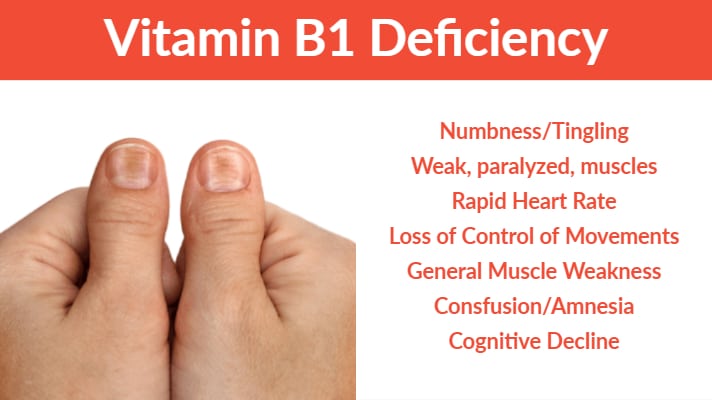Did you know that the first vitamin was discovered in the early 1900s?
This vitamin, known as thiamine (vitamin B1) is essential for human health, but most people are unaware of its importance.
Thiamine plays a crucial role in energy production and nerve function, yet many people don’t get enough of it from their diet.
It acts in the form of an enzyme, converting hydrogen to energy.
This process is known as the Krebs cycle and it’s necessary for all cells in our body – including nerve cells.
In this article, we will discuss the benefits of thiamine and how to ensure you’re getting enough of it!
Introduction

Thiamine, also known as vitamin B1 is a water-soluble vitamin that’s part of the B complex group.
These vitamins are essential for human health and can be found in many foods.
They’re also available as supplements.
Thiamine is important for many functions in the body, including energy production and nerve function.
Glucose is then used by the body for energy.
Thiamine also helps to produce ATP, a molecule that’s responsible for storing and transporting energy in the body.
This energy production process is known as glycolysis.
ATP is essential for all cell function, including muscle contraction and nerve impulses.
A lack of thiamine can lead to serious health problems, such as beriberi disease which is caused by a lack of thiamine.
Thiamine is important for the cardiovascular system too.
Deficiency Symptoms

The symptoms of b1 vitamin deficiency can vary depending on the severity.
Mild deficiencies may cause fatigue and muscle weakness.
More severe deficiencies can lead to serious health problems, such as beriberi and Wernicke-Korsakoff syndrome.
- If you have beriberi, you may experience fatigue, muscle weakness, and difficulty walking. More severe cases can lead to heart failure and death.
- If you have Wernicke-Korsakoff syndrome, you may experience confusion, memory loss, and difficulty walking. If left untreated, this disorder can be fatal.
Epidemiology
Beriberi is common in developing countries, where diets are often lacking in essential nutrients.
It’s also seen in people with chronic alcohol abuse and those with certain genetic conditions.
Wernicke-Korsakoff syndrome is also common when there is a B1 vitamin deficiency. This syndrome is most commonly seen in people with chronic alcohol abuse.
It’s also seen in people with certain genetic conditions.
Pathophysiology
The pathophysiology of beriberi is complex and not fully understood.
It’s thought to be caused by a combination of factors, including poor nutrition, alcohol abuse, and genetic predisposition.
Beriberi is characterized by anorexia, weakness, and weight loss.
It can also lead to edema, heart failure, and death.
Wernicke-Korsakoff syndrome is a serious neurological disorder that’s caused by a lack of thiamine.
It’s characterized by confusion, memory loss, and difficulty walking.
If left untreated, it can lead to coma and death.
A lack of thiamine can also cause other health problems, such as fatigue, muscle weakness, and heart disease.
Who is most at risk for vitamin B1 deficiency?


There are several groups of people who are at increased risk for thiamine deficiency.
- People with chronic illnesses, such as cancer and HIV/AIDS, are at risk.
- People who abuse alcohol are also at risk because alcohol inhibits the absorption of thiamine and can lead to deficiency.
- Older adults are also at risk for thiamine deficiency because the body’s ability to absorb thiamine declines with age.
- Pregnant women and breastfeeding mothers are also at increased risk because they need more thiamine than usual.
If you’re in one of these groups, it’s important to be aware of the signs and symptoms of thiamine deficiency.
Prognosis
Beriberi is a serious condition that can lead to death.
However, it’s often easily treated with thiamine supplements.
Wernicke-Korsakoff syndrome is a serious neurological disorder that can be fatal.
However, it’s also often treatable with thiamine supplements and other interventions.
If you think you may be at risk for either condition, it’s important to see your doctor.
Early diagnosis and treatment are essential for a good outcome.
I highly suggest look into this more if you or a family member has any of these issues. It could save a life!
How do you fix B1 deficiency?

The best way to treat severe thiamine deficiency is to get more of this essential vitamin in your diet.
B vitamins are water soluble, which means they’re not stored in the body.
This makes it important to get enough of these vitamins from your diet.
Foods that are rich in thiamine include:
- meat
- poultry
- fish
- nuts
- seeds
You can also get thiamine from fortified foods, such as cereals and breads.
Supplements
If you’re not getting enough thiamine from your diet, you may need to take supplements.
Thiamine supplements are available in both oral and injectable forms.
They’re typically taken once daily.
If you’re using thiamine pills, keep in mind that you should follow the directions on the label.
You should also talk to your health professionals if you have any concerns.
Thiamine supplements are available in both oral and injectable forms.
They’re typically taken once daily.
If you’re taking thiamine supplements, it’s important to follow the instructions on the label.
Evaluation
It’s important that you don’t evaluate yourself.
If you think you may have a thiamine deficiency, it’s important to see your doctor.
They can order tests to check your thiamine levels and make sure you’re getting enough of this essential vitamin. Or you could order a vitamin deficiency test online.
Conducting your own research is also a good idea at some point.
There’s a lot of misinformation out there, so it’s important to be sure you’re getting your information from reliable sources.
Overall, vitamin B1 is an essential nutrient that’s often overlooked.
If you think you may have a thiamine deficiency, I highly recommend seeing your doctor and getting tested.
B1 Vitamin Deficiency Summary
It is clear that thiamine deficiency can have devastating consequences for patients. However, it is also clear that with early diagnosis and treatment, the prognosis for these patients can be improved significantly.
Risk factors for thiamine deficiency include:
- chronic illness
- alcohol abuse
- older age
- pregnancy
Thiamine should be considered in any patient who presents with signs or symptoms of Wernicke’s encephalopathy or Korsakoff’s psychosis.
Thiamine is an often forgotten vitamin, but it’s essential for our health.
Without thiamine, we can experience serious health problems. Thankfully, thiamine deficiency is easy to treat if it’s caught early enough.
Make sure you get your recommended daily allowance of this vital vitamin!


